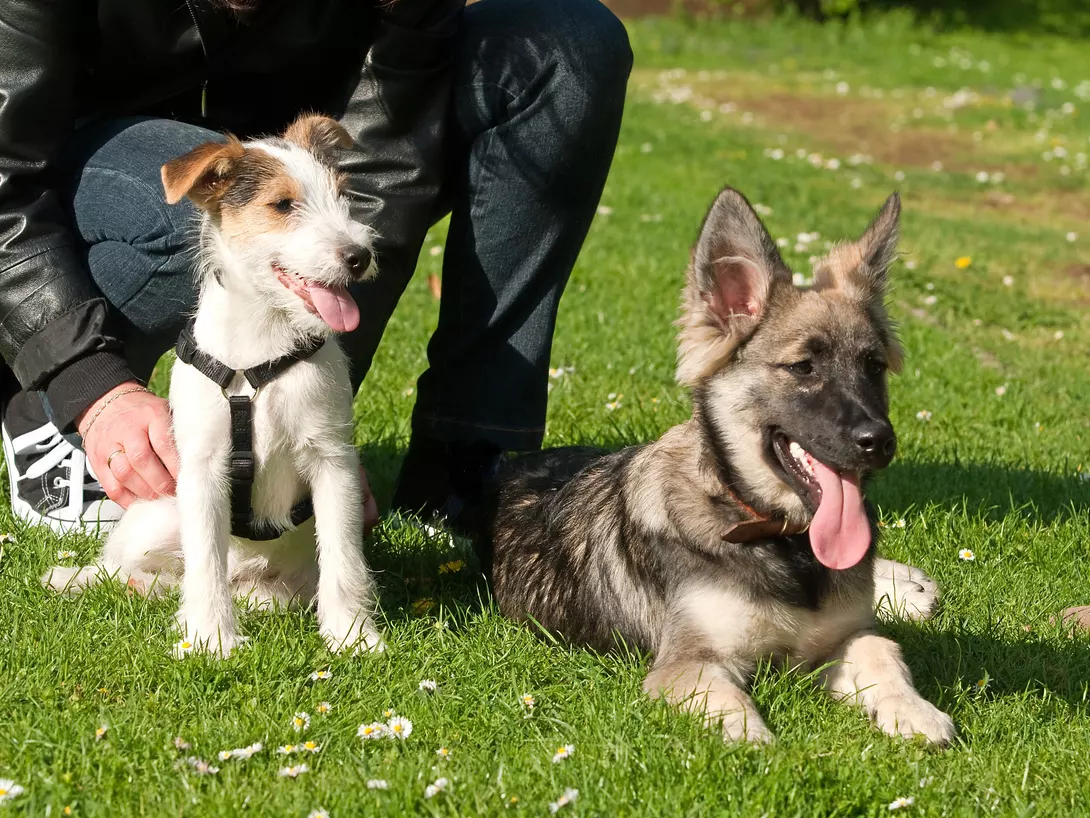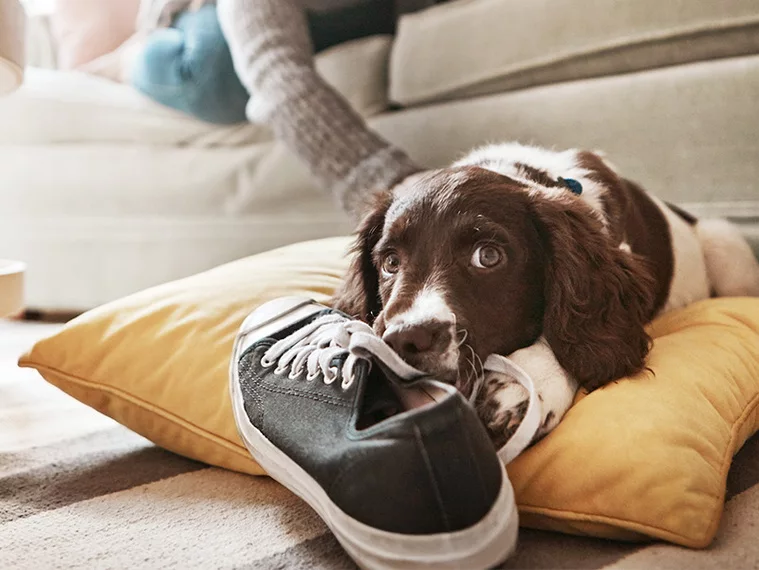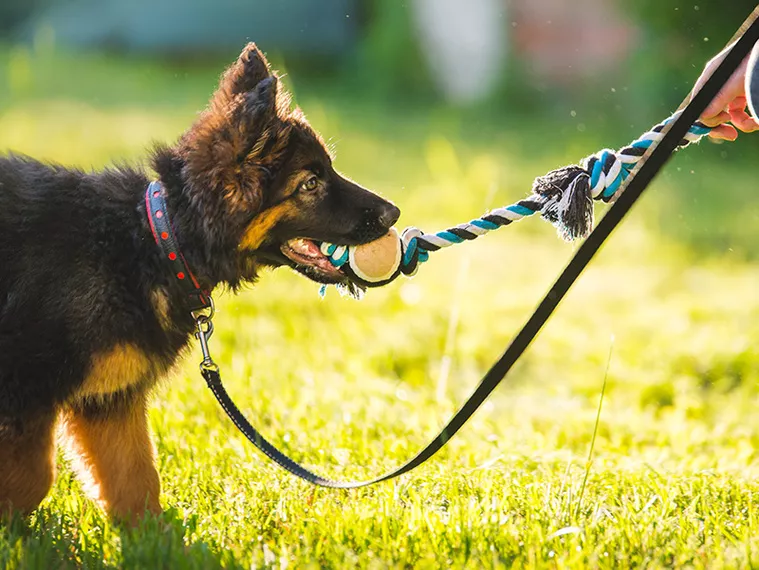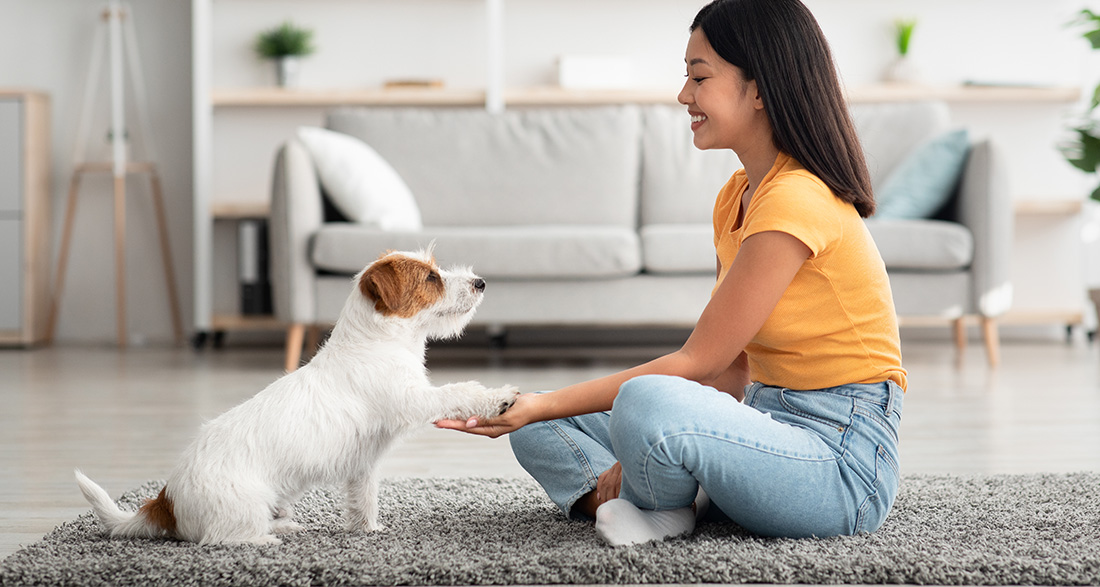Usually, a puppy is around eight to twelve weeks old when it moves to its new family. During this time, the dog is in a sensitive phase—an ideal time to establish contact with peers in a puppy group.
Here, you will learn when and why you should take your dog to puppy school and what to consider when choosing the right one.
Why Should You Go to Puppy School with Your Dog?
In the wild, it’s straightforward: a young dog grows up with parents and siblings, learning the basics of proper social behavior and healthy communication with its peers “incidentally.” However, a puppy taken out of its natural family bond and integrated into a new family requires ongoing support from humans. This is the time when the foundations for all behaviors crucial in later life are laid.
Regular attendance at a puppy group is helpful for socialization and a great deal of fun for everyone involved. Whether it’s a playgroup, a socialization group focusing on fundamental behaviors, or a training group where basic commands are taught—both the dog and the owner benefit from all these offerings.
How Beneficial Is Puppy School?
A visit to puppy school aids a young dog in learning essential foundations and social skills, such as playing and interacting with other dogs and humans. Various commands and obedience can also be learned in a puppy school.
A good puppy school provides not only training for the young dog but also plenty of learning material for you. Experienced trainers answer your questions about raising a young dog and provide guidance and support. You’ll receive tips that will help you continue your puppy’s education successfully at home.
When choosing a puppy school, it’s crucial that it is led by experienced trainers using a positive, reward-based training method. Training a puppy based on force will do more harm than good and should be avoided.

What Do You Learn in Puppy School?
If you simply want to have some fun with like-minded people, a playgroup is the right choice. Here, too, dog trainers provide precise instructions, overseeing when a game is going well and when it’s time to separate the little ones. Even puppies can get quite rough with each other, and regular breaks are essential to prevent the enthusiastic youngsters from getting overwhelmed, turning fun into stress.
Ideally, the knowledgeable trainer also gives individual and personal guidance to each dog owner, helping them better understand their four-legged offspring and its behaviors. For the owner, this is an opportunity to assess their young dog, recognize its strengths and weaknesses, and promote them optimally. Undesirable behavior can also be stopped before it becomes established.
In addition to personal assessments and free play with other puppies, the puppy school may also include exercises to learn basic commands. “Sit,” “Down,” and “Heel” are usually the classics and often come first on the agenda. Don’t be surprised if there are no toys in the puppy group. Dogs derive the most benefit from interacting with each other and their humans. Colorful balls can even disrupt this dynamic.
What Makes a Good Puppy School?
The “character” assessment of a puppy is one of the trainer’s qualities. Every dog has its personality, which is evident even in puppyhood. If your little one behaves a bit non-conformist or “difficult” and is about to be banished from the group, go home with joy. That’s not how it should be! A good trainer will patiently and advisably assist you in challenging situations, showing you how you and your dog can make the most of it. If the trainer can also establish a really good connection with your little one and enjoys its full trust, then everything is fine in the dog world.
Take your time choosing your puppy school. Look around the premises, talk to the trainers, and inquire about their qualifications. The chemistry must also be right between you and the dog trainer. After all, you only want someone you like to educate your offspring, whether they have four legs or two. Inquire about the curriculum and group sizes.
Often, theory sessions are offered as part of the puppy group, where dog owners can exchange ideas with the trainer and others on education topics such as house training, bite inhibition in play, or health-related questions. Other education topics, such as what to do with emerging hunting behavior, aggression, or assertiveness, should not be excluded from the discussion. Honest and expert help should be expected for each of your questions.
Individual attention is guaranteed only when a maximum of ten animals are in a puppy group. Feel free to ask for a trial lesson, visit it calmly without your dog first, and exchange ideas with other dog owners before committing to a registration. Have fun!

What Does Puppy School Cost?
The cost of a puppy school can vary depending on the location, curriculum, and provider. Typically, the costs range from 50 to 200 euros per month. In some cases, it may be possible to get a discount for attending multiple courses.
Inquire in advance about teaching methods and the reputation of the puppy school among other dog owners; rely on experience. A good puppy school should focus on positive reinforcement and social interaction between puppies and their owners.
When Should You Start Puppy School?
Young dogs can usually attend puppy school from around twelve weeks of age, depending on individual circumstances. Once your new family member has moved in, give yourself and your pet some time to settle. When calm has returned, usually after about one or two weeks of living together, you can start attending puppy school with your dog.

How Often Should Puppy School Be Attended?
In most cases, a course in a puppy school lasts between six and twelve weeks, usually with classes held once a week. To support your puppy’s learning progress, it’s advisable to attend the classes regularly. In addition to the lessons in the puppy school, allocate enough time to continue training and exercises at home to deepen the new knowledge.
It’s essential that both you and your dog enjoy the puppy school, with neither of you feeling stressed or overwhelmed. If you feel that the course is too challenging for your puppy, talk to your trainer about possible adjustments or additional support.


